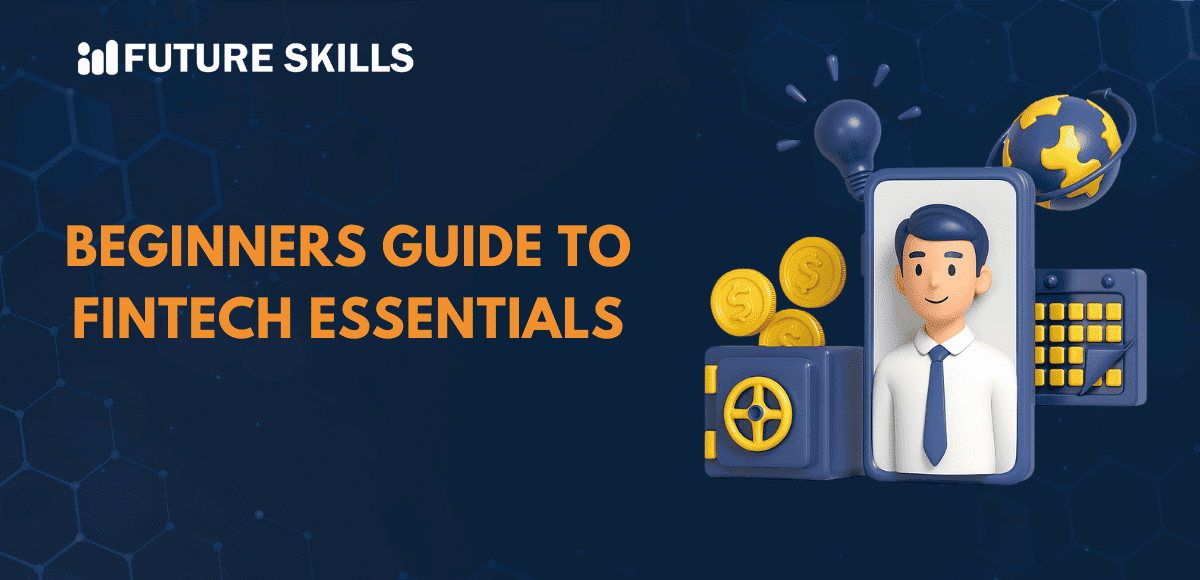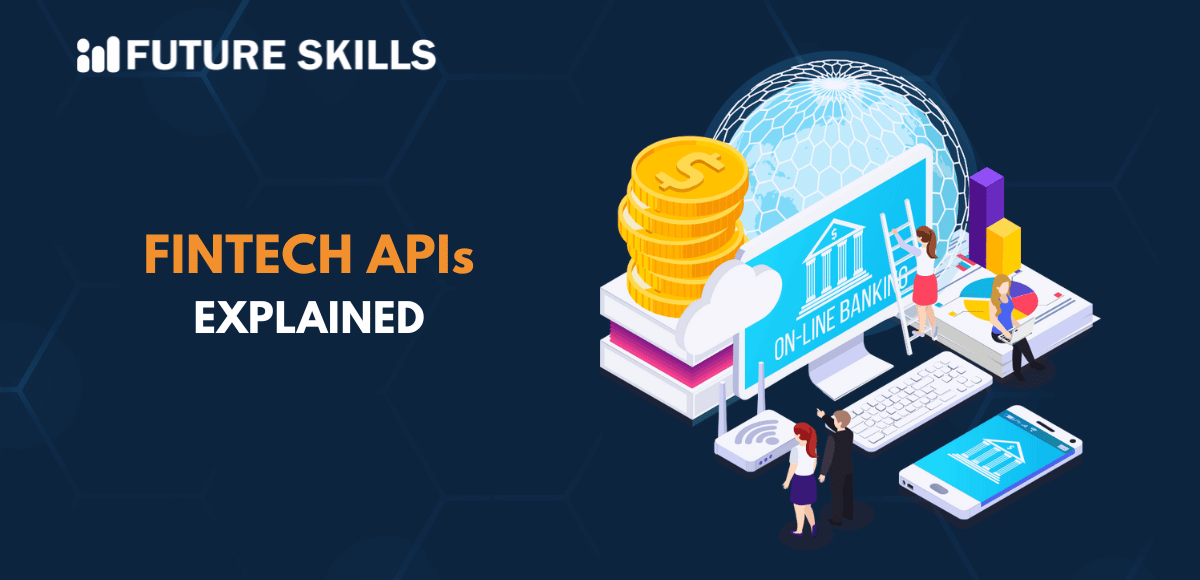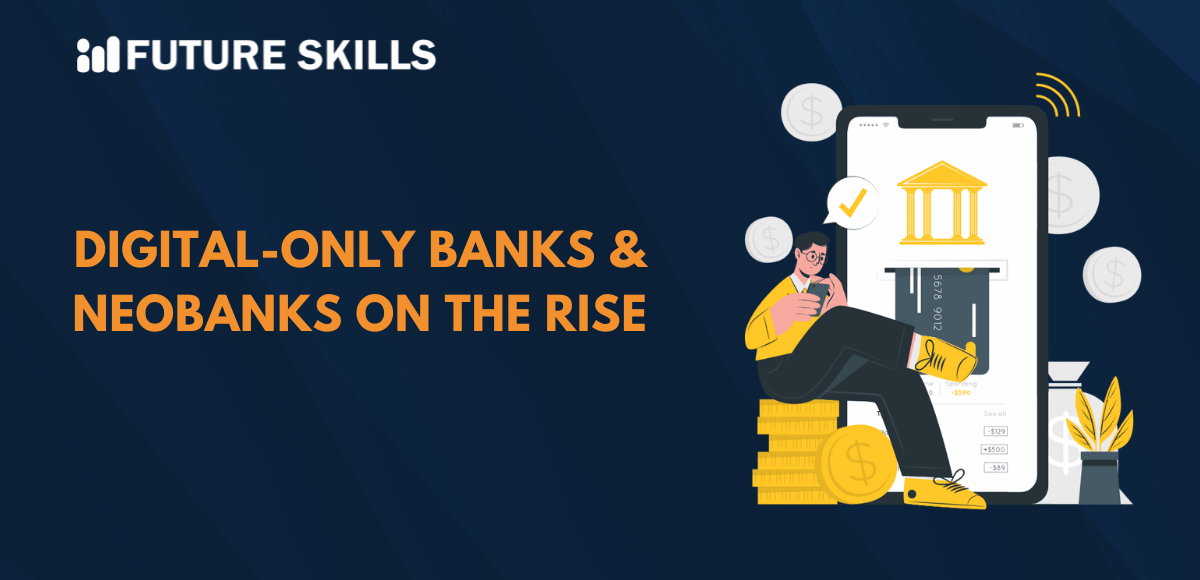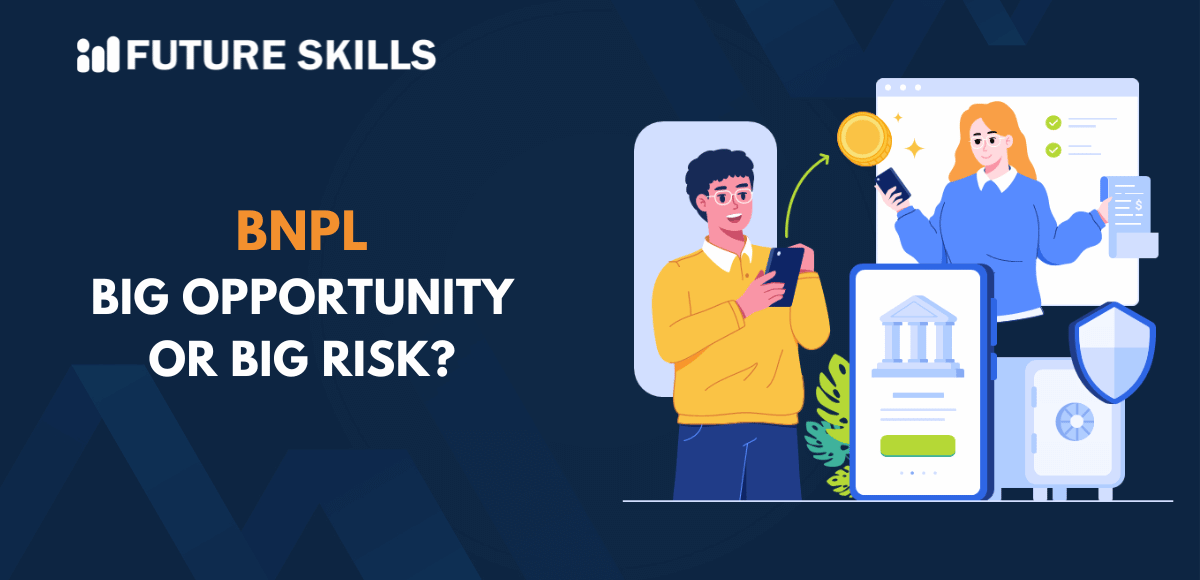The world of finance has undergone a revolutionary change in recent years, thanks to the emergence of fintech. Fintech, also known as financial technology, basically merges the finance and technology domains. By the year 2029, the global fintech market is likely to surpass USD 644 billion, reflecting its rising popularity.
The role of emerging technologies such as Artificial Intelligence, Machine Learning, Big Data Analytics, and Cloud computing has been instrumental in driving fintech. Now is the perfect time to broaden one’s insight into fintech. The Fintech guide is a perfect tool for beginners to explore fintech at an in-depth level.
Understand how fintech is revolutionizing finance and develop a career with our Fintech Certification Program. Enroll now!
Understanding the Concept of Fintech
Fintech can be defined as the adoption of digital technology in the finance domain. This combination has led to the creation of novel financial services. Due to fintech, customers are able to have access to a broad range of financial services such as mobile banking, digital wallets, cryptocurrency, and many more. The diverse types of fintech have undoubtedly expanded the boundaries of the traditional financial world.
The ultimate purpose of fintech is to improve the overall efficiency as well as the accessibility of financial services. Today, fintech has been acting as a major disruptor of conventional financial models. In order to dig deeper into the topic, you must answer the question: What are the basics of fintech?
Basics of Fintech
In order to find an answer to – What are the basics of fintech? You need to realize that the role of technology is indispensable. In fact, technology serves as the ultimate foundation that makes fintech services more user-friendly, relevant, and valuable for users. The key areas of fintech include:
-
Digital banking
Thanks to the adoption of technology, today banking has gone online. Thus, banks are able to operate online, and people no longer need to go to the physical branches of banks. They can virtually check their account balance, make financial transactions, and transfer money. Thus, the convenience of customers has reached new heights.
-
Online payments
One of the most valuable components of fintech revolves around digital payments. You can use innovative platforms such as PayPal, Apple Pay, Google Pay, and many more to make online payments. The ability to engage in seamless banking transactions has certainly revolutionized how people use banking solutions. Seamless online payments are certainly one of the most common fintech examples that exist today.
-
Investment
Fintech has undoubtedly transformed the investment domain by democratizing it. This has been possible because of the emergence of robo-advisors and virtual assistants. Individuals do not have to rely on human experts. They have the option to use virtual experts. They can also leverage trading platforms so that their investment journey can get simpler.
Enroll now in the AI and Fintech Course to familiarize yourself with the best practices for implementing AI and fintech solutions.
Major Benefits of Fintech
In order to get a complete insight into fintech and its transformative nature, you need to look at its core benefits. Some of the top benefits that have been identified in the Fintech guide include:
-
Better accessibility
Thanks to fintech, financial services have become much more accessible for people today. This is because people do not have to visit banks to manage their finances. They can simply use banking applications or websites to manage their finances, check their accounts, and apply for loans. The creation of new types of fintech has undoubtedly been extremely beneficial for customers.
-
Reduction in costs
Fintech has certainly reduced costs for customers of banks. They no longer have to visit bank branches to avail of banking services. Moreover, for people belonging to rural regions, traveling to bank branches can give rise to a financial burden. However, they do not have to worry about this as they can simply use digital fintech solutions. Mobile banking is one of the most popular fintech examples that is revolutionizing the experience of banking customers today.
-
High convenience
The integration of technology into finance has increased the overall convenience for individuals. Moreover, it has also increased the overall speed of digital transactions. By leveraging fintech, it is possible for you to make transfers on a real-time basis. Thus, the experiences of diverse stakeholders within the banking and fintech landscape have been simplified.
Challenges of Fintech
It is true that the concept of fintech has given rise to a host of benefits. However, at the same time, it has created several concerns as well as challenges that cannot be negated. Some of the major challenges of fintech that you need to be aware of are:
-
Data security concerns
One of the fundamental challenges relating to fintech revolves around data security. Malicious actors such as cybercriminals and online hackers pose major threats to financial institutions as well as customers. The rise in the number of data breach incidents shows that data security is an important area that needs to be strengthened in the existing fintech space.
-
Regulatory issues
Another grave challenge of fintech is related to regulations and legislation. Fintech service providers need to navigate the complex regulatory landscape while offering fintech solutions to customers. The rapid pace at which new technologies are being introduced in the finance space is giving rise to compliance-related concerns.
-
Reliance on technology
Fintech is entirely dependent on digital technology. As a result, customers need to have access to the internet, and they must have a smartphone or other electronic device to use fintech solutions. The lack of these elements may limit access to the necessary fintech services.
Familiarize yourself with the fundamentals of fintech and their impact on financial services with our unique Fintech Course. Get started today!
Key Fintech Applications
Although fintech is a fairly new concept, its application has been growing rapidly. The key fintech applications show that today, fintech is touching almost every part of finance. The major application areas include:
-
Investment applications
One of the most popular fintech applications that exists today is investment apps. Users can leverage these apps for investing in stocks, bonds, and even cryptocurrencies. By using these apps, customers can gain access to real-time information, which can help them make insightful investment decisions. Today, several investment apps are trending among customers, highlighting the growing acceptance and adoption of such applications.
-
Mobile banking applications
Today, a majority of banking customers welcome mobile banking apps. This is because such applications offer them a hassle-free and seamless experience. By using such applications, they can access a diverse range of banking solutions in a simple and easy way. They do not have to physically travel to their bank branch, and they can avoid waiting in long queues at banks.
-
Digital wallets
The emergence of digital wallets has undoubtedly simplified how people make their payments today. They do not have to rely on cash to pay someone; they can use their digital or virtual wallet to transfer money. Thus, the reliance on physical cash has significantly reduced thanks to fintech.
Final Words
The Fintech guide gives a holistic insight into the concept of fintech and how it is reshaping the future of finance. Thanks to the adoption of digital technologies in the finance landscape, fintech has become a reality today. In order to understand fintech holistically, you need to take into account the associated benefits as well as challenges.
The guide focuses on the top benefits and challenges that exist within the fintech landscape. Furthermore, top fintech applications have been identified, reflecting their rising popularity in the current times. To stay ahead in this rapidly evolving field, exploring a professional fintech certification can be a valuable step for aspiring professionals and industry experts alike.






